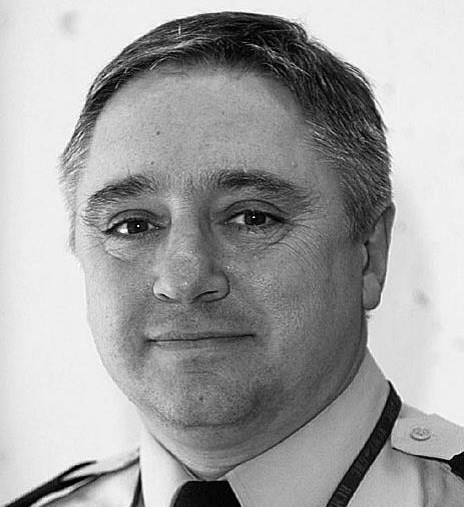BURNABY, B.C. — The supervisor of an RCMP officer who took his own life in 2013 says Pierre Lemaitre didn't seem overly stressed about misinformation he gave the media after the death of a man following a confrontation with police at Vancouver's airport.
John Ward, a retired staff sergeant, told a coroner's inquest Wednesday that part of the job of a communications officer is to trust that the information going out to the media is largely correct.
Lemaitre's former family doctor and psychologist have told the inquest that he had post-traumatic stress disorder from dealing with victims of crime but the incident in 2007 with Robert Dziekanski at Vancouver International Airport increased his depression and anxiety.
A former media strategist for the Mounties accused the department of betraying Lemaitre, testifying that he had been "hung out to dry" by his superiors. Atoya Montague told the inquest that Lemaitre was used to tell a false story about the death of Dziekanski, a Polish man who couldn't speak English and became agitated after wandering around the airport arrivals area for 10 hours.
Montague said Lemaitre became a scapegoat for the Mounties after two decades of building his reputation and rising to the rank of sergeant. She said Lemaitre was told the inaccurate information he provided to the media about the Dziekanski case would not be corrected.
After the incident at the airport, Lemaitre told reporters that officers approached a combative man and jolted him twice with a Taser. But two days later he watched a video from a witness that showed Dziekanski was relatively calm when the Mounties arrived and that they used the stun gun five times.
Ward was asked Wednesday by a juror whether the RCMP was generally aware when it gave out incorrect information.
"I can't recall where we gave out wrong information," he replied. "We were careful about the information we gave out."
Coroner's inquests are held to hear evidence on recommendations that could be made to prevent similar deaths in the future and do not make findings of blame.
Dr. Cameron Smith told the inquest earlier this week that Lemaitre was prescribed antidepressants and anxiety medication but he was not suicidal. He described Lemaitre as a stoic man whose mental health issues began improving, only to worsen after Dziekanski's death.
His wife testified that Lemaitre was never the same after the incident with Dziekanski. Sheila Lemaitre told the inquest jury her husband was transferred from the case after two days and was eventually moved to the traffic department, which she said he compared to "being put out with the trash."
Lemaitre's supervisor in the traffic division became emotional when he read the last few email exchanges between the two men.
RCMP Supt. Denis Boucher told Lemaitre they could meet up for coffee and chat, and said he hoped he was making progress in his recovery.
"It's been quite a struggle dealing with this depression," Lemaitre replied in an email Boucher read to the inquest.
Boucher said he was aware Lemaitre was suffering from PTSD, and described him as someone who had a strong work ethic.



